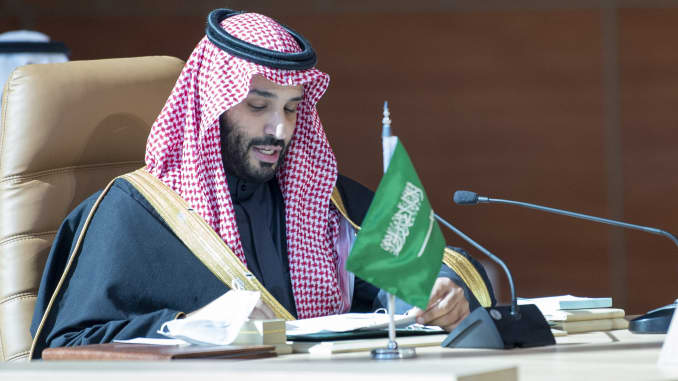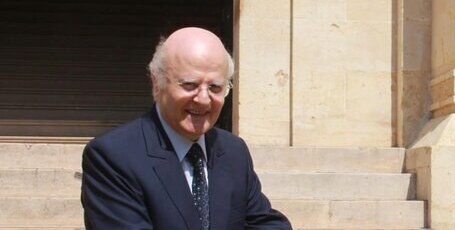by reuters — WASHINGTON: US Secretary of State Antony Blinken is expected to have a chat with his Turkish counterpart, Foreign Minister …

BEIRUT (AP) — In the middle of the destroyed Beirut neighborhood of Gemmayzeh, a small team in masks and gloves were sanitizing and packing oxygen machines to be sent to those in need. It’s the latest venture of a Lebanese civil group that arose with the coronavirus pandemic and has been finding new avenues to help as the country’s crises expand. “No one is exempt from COVID. Nobody. Nobody has super-power immunity,” said Melissa Fathallah, one of the founders of Baytna Baytak, Arabic for Our Home is Your Home. “We saw that our own relatives and our colleagues are suffering with this, we decided, okay, we are going to start another fundraiser and to specifically focus on the oxygen machines.” Raising more than $27,000, they currently have placed 48 machines with those who need it across the country.
Baytna Baytak, with 110 staffers, launched at the start of the pandemic with a very different initiative: Finding a home away from home for front-line workers who were worried about exposing their families to the virus. During Lebanon’s first lockdown in March, they housed 750 front-line workers in various apartments. Chloe Ghosh, a 26-year-old medical resident at a government hospital in Beirut, has been living in accommodations provided by the group since the start of the pandemic. Her family is from Tannourine, a small town 80 kilometers (50 miles) north of Lebanon. For her, putting her family at risk was another burden she couldn’t fathom. “If I got COVID or anyone my age got COVID, we could survive,” Ghosh said. “But our families, no.” Her first accommodation with the group was wrecked when another disaster struck Beirut, the massive Aug. 4 explosion at the city’s port. The blast killed more than 200 people, injured 6,000 others and destroyed thousands of homes. Ghosh was unharmed. She moved to another place provided by Baytna Baytak across town in Hamra street. She now shares a four-bedroom apartment with three other medical workers who work in different hospitals around the city.

By Natasha Turak - cnbc.com -- Saudi Arabia has announced new judicial reforms, putting the kingdom on a path to codified law — a huge step in the deeply conservative country whose legal system is based on Islamic law. “The Personal Status Law, the Civil Transactions Law, the Penal Code for Discretionary Sanctions, and the Law of Evidence represent a new wave of judicial reforms in the Kingdom,” Saudi state news agency SPA quoted Crown Prince Mohammed bin Salman as saying late Monday. “The new laws represent a new wave of reforms that will ... increase the reliability of procedures and oversight mechanisms as cornerstones in achieving the principles of justice, clarifying the lines of accountability,” the crown prince said in a statement. He said the new laws will be announced over the course of 2021.
A Saudi official told Reuters that reforms are designed to meet the needs of the modern world while adhering to Sharia. The announcement is the latest in a series of dramatic economic and social reforms launched by the 35-year-old crown prince aimed at modernizing the kingdom. It fits into his Vision 2030 agenda, which aims to diversify the economy away from oil and attract foreign talent and investment, and comes as Saudi Arabia pitches itself as a destination for international business headquarters. “This is an important step on the path towards global best practices that give businesses the confidence to invest,” Tarek Fadlallah, Middle East CEO at Nomura Asset Management, told CNBC on Tuesday. Having no codified legal system often resulted in inconsistency in court rulings and drawn-out litigation procedures. The announcement made a specific mention of women in Saudi Arabia, who have long held a lower status to men in terms of legal and economic rights, and whom the crown prince described as being particularly harmed by the lack of written laws over certain issues. “Discrepancies in court rulings has led to a lack of clarity in the rules governing the incidents and practices, and has hurt many, mostly women,” the SPA quoted the crown prince as saying.

By NAJIA HOUSSARI -- arabnews.com -- BEIRUT: Jean Obeid, the veteran Lebanese MP and former journalist who twice ran for the presidency, died on Monday from complications related to COVID-19. He was 81. Obeid, born in the village of Alma in northern Lebanon, was minister of education, youth, sports, and foreign affairs in the governments of Rafik Hariri. In 1987, during the civil war, he was abducted by gunmen in West Beirut and released unharmed after four days. A member of a prominent Maronite family, Obeid had a successful career as a journalist before entering politics. He was an MP from 1991 until 2005, and returned to parliament in 2018 when he won a seat representing Tripoli. Lebanon began gradually relaxing its three-week virus lockdown on Monday despite a high number of COVID-19 cases.
The Ministry of Health recorded 54 deaths and 2,081 new COVID-19 cases on Sunday, bringing the cumulative death toll to 3,616 and the total number of cases to 319,917 since Feb. 21, 2020. Arab News obtained a report by the Crisis Observatory at the American University of Beirut (AUB) referring to three alarming indicators that suggest a new wave of COVID-19 is underway. According to the report, positive polymerase chain reaction (PCR) tests reached 22 percent during the past two weeks, the highest rate in the world. The World Health Organization (WHO) advises against the return to normality or semi-normality before this percentage drops to 5 percent or below.
Khazen History


Historical Feature:
Churches and Monasteries of the Khazen family

St. Anthony of Padua Church in Ballouneh
Mar Abda Church in Bakaatit Kanaan
Saint Michael Church in Bkaatouta
Saint Therese Church in Qolayaat
Saint Simeon Stylites (مار سمعان العامودي) Church In Ajaltoun
Virgin Mary Church (سيدة المعونات) in Sheilé
Assumption of Mary Church in Ballouneh
1 - The sword of the Maronite Prince
2 - LES KHAZEN CONSULS DE FRANCE
3 - LES MARONITES & LES KHAZEN
4 - LES MAAN & LES KHAZEN
5 - ORIGINE DE LA FAMILLE
Population Movements to Keserwan - The Khazens and The Maans
ما جاء عن الثورة في المقاطعة الكسروانية
ثورة أهالي كسروان على المشايخ الخوازنة وأسبابها
Origins of the "Prince of Maronite" Title
Growing diversity: the Khazin sheiks and the clergy in the first decades of the 18th century
Historical Members:
Barbar Beik El Khazen [English]
Patriach Toubia Kaiss El Khazen(Biography & Life Part1 Part2) (Arabic)
Patriach Youssef Dargham El Khazen (Cont'd)
Cheikh Bishara Jafal El Khazen
Patriarch Youssef Raji El Khazen
The Martyrs Cheikh Philippe & Cheikh Farid El Khazen
Cheikh Nawfal El Khazen (Consul De France)
Cheikh Hossun El Khazen (Consul De France)
Cheikh Abou-Nawfal El Khazen (Consul De France)
Cheikh Francis Abee Nader & his son Yousef
Cheikh Abou-Kanso El Khazen (Consul De France)
Cheikh Abou Nader El Khazen
Cheikh Chafic El Khazen
Cheikh Keserwan El Khazen
Cheikh Serhal El Khazen [English]
Cheikh Rafiq El Khazen [English]
Cheikh Hanna El Khazen
Cheikha Arzi El Khazen
Marie El Khazen